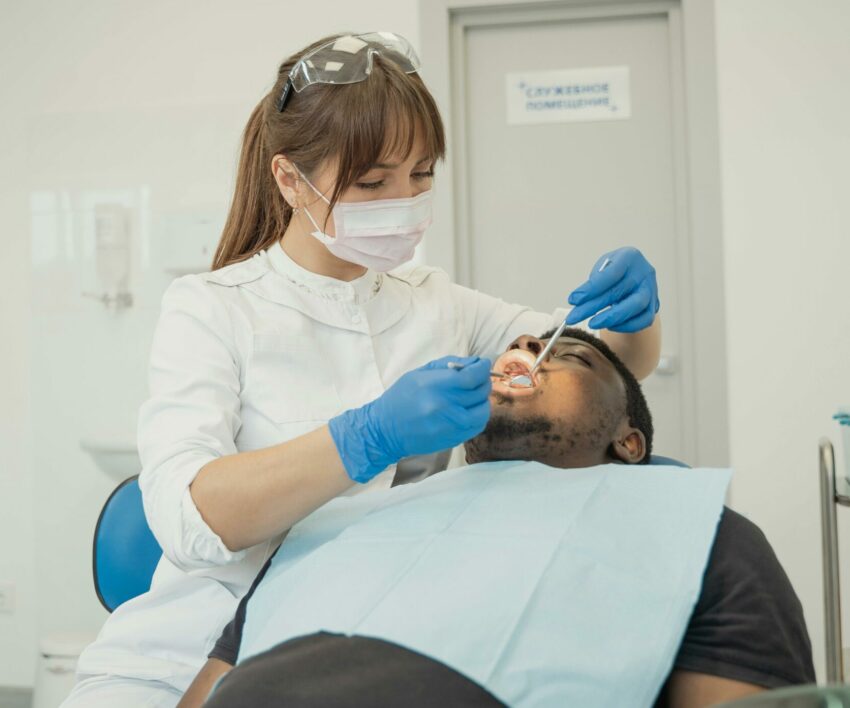
Oral care is of utmost importance because we need our mouths for a lot of things. This is why any type of illness that affects your dental area needs to be swiftly adhered to, to prevent long-term effects.
Have you ever experienced the feeling of having your jaw stuck and unable to move, making it painful for you to even talk? Have you ever wondered what might be the cause of that? It is possible that you had what dental experts call a locked jaw.
The Dental Implant Specialist Centre defines the locked jaw known medically as trismus, as a disorder that causes the jaw muscles to tighten up, limiting the mouth’s ability to open fully. The majority of lockjaw cases are brief, usually lasting less than two weeks with the symptoms peaking within a few hours. “The locking sensation that lockjaw causes typically affects the entire jaw and results in a range of painful symptoms that are felt on both sides of the face.”
The above centre indicates that symptoms of a locked jaw include;
- Jaw pain and cramping, caused by spasming jaw muscles
- Having trouble biting, chewing, or swallowing because of restricted jaw movement
- Having trouble communicating, which might make it difficult for others to understand you
- Headache caused by higher jaw tension
- Earache
Healthline, a medical information hub states that your jaw can tighten up due to numerous factors, including stress, temporomandibular joint (TMJ) problems, nightly teeth grinding, and a condition called tetanus. This is how these conditions can cause you a jaw-lock;
Temporomandibular joint disorders (TMD): According to Healthline, this disorder hurts the jaw and muscles around the jaw. The health information hub further states that one or both of the hinge joints (temporomandibular joints) may become painful or locked. “These joints are located between the lower jaw and the temporal bone.” It is also said that throbbing, or soreness in or around the jaw, cheek, or ears can potentially be symptoms of TMD and that eating might make you experience more discomfort and give you a grinding or clicking sound. The publication further claims that pain from TMD is frequently temporary and can go away with home remedies.
Stress: The National Library of Medicine states that stress and worry can aggravate jaw discomfort and stiffness. An example according to Healthline would be, accidentally grinding your teeth or clenching your jaw when you’re sleeping and keeping your jaw tightened when you wake up without realising it. “Tension headaches and other related symptoms can also be brought on by stress.”
Bruxism, or grinding of teeth: Healthline further claims that teeth grinding, or bruxism can have many reasons, including issues related to sleeping problems, including snoring and sleep apnea using certain medications, such as SSRIs (selective serotonin reuptake inhibitors) using illegal drugs including cocaine and ecstasy. “Bruxism can cause tightness or feelings of soreness in the face, neck, and upper or lower jaw. It can also cause headaches or earaches.”
Tetanus: A possibly fatal bacterial illness, tetanus causes abdominal stiffness, difficulty swallowing, and excruciating jaw and neck muscular spasms are among the symptoms.
This is how you can treat a locked jaw at home, according to the Lighthouse Dental Centre.
- Heat compress the area to release the jaw’s tight muscles. Applying a compress multiple times a day could be necessary.
- Use a cold compress if you’re hurting. The cold will assist in lowering inflammation and discomfort.
- Every six hours, take an over-the-counter anti-inflammatory.
- To release the tension in the jaw muscles, stretch your jaw two to three times a day.
- Remain hydrated. Keeping your mouth muscles flexible and maintaining good health are two benefits of drinking water.
- Reduce your level of tension and anxiety. Jaw clenching brought on by psychological stress may exacerbate lockjaw.
- Eat meals high in calcium and magnesium. Consuming meals high in these nutrients may assist with TMJ problems, albeit it might not be an instant solution.
If none of these techniques work, the Lighthouse suggest you make an appointment with a dentist.




